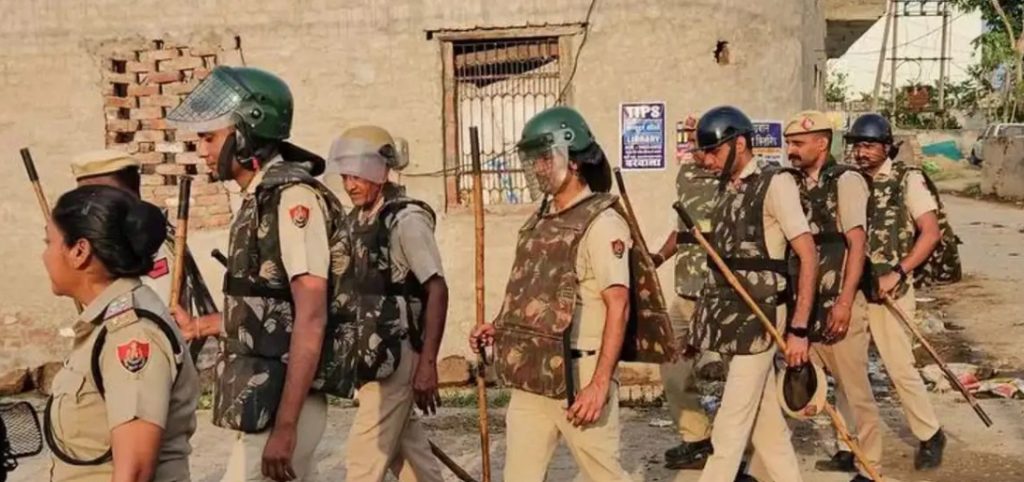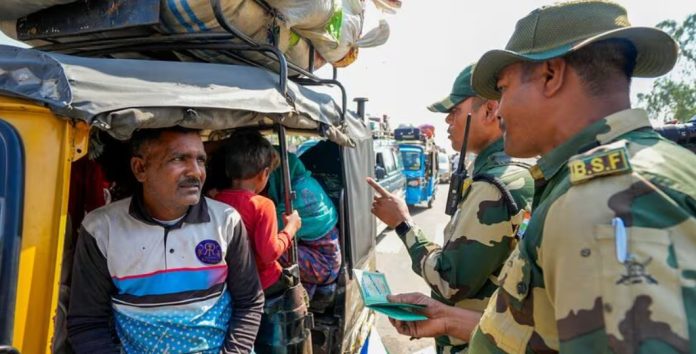The recent directive from the High Court of Jammu and Kashmir and Ladakh has brought a significant and much-needed reprieve to a Jammu and Kashmir (J&K) police constable and his eight siblings, who were on the brink of being deported to Pakistan from Punjab. This judicial intervention has effectively halted their impending deportation and paved the way for their return to their homeland, at least for the time being. The case underscores the intricate and often emotionally charged nature of issues surrounding nationality, residency, and border control, particularly in regions that have experienced historical conflict and significant cross-border movement of people.
The nine siblings, including the police constable identified as Ifthkar Ali, found themselves facing deportation notices amidst a broader crackdown that followed the recent, tragic terror attack in Pahalgam. These notices were reportedly served on a number of individuals, predominantly those with origins in Pakistan-occupied Kashmir (PoK), residing in the Poonch, Rajouri, and Jammu districts of the Union Territory. The timing of these actions suggested a heightened security response, with authorities seemingly reviewing the status of individuals perceived as foreign nationals within the region.
However, the situation for Ifthkar Ali and his siblings took a unique trajectory due to their persistent and documented claim of being Indian nationals with deep and long-standing roots in the Poonch district of Jammu and Kashmir. They vehemently asserted that their family has been residing in Salwah village for generations, possessing tangible evidence in the form of revenue records and other official documents to substantiate their claim of permanent residency within Indian territory. This firm assertion of their Indian nationality formed the crux of their urgent petition filed before the High Court, seeking immediate judicial intervention to halt their imminent deportation.
The High Court, recognizing the profound implications of the case and the potential for a grave miscarriage of justice if individuals claiming Indian citizenship were forcibly deported, promptly took cognizance of their plea. Justice Rahul Bharti, after a preliminary hearing of the arguments presented by their legal counsel and a careful examination of the revenue records submitted as evidence, concluded that the petitioners had indeed presented a prima facie case warranting the court’s intervention. Consequently, a stay order was issued, explicitly directing that the nine siblings should not be compelled to leave the Union Territory of Jammu and Kashmir until further orders from the court.

Despite this clear directive from the High Court granting them temporary sanctuary within Indian territory, a disturbing development occurred. Ifthkar Ali and his eight siblings were reportedly moved from the Kathua district of Jammu and Kashmir to the state of Punjab. This transfer raised serious concerns and fueled anxieties that the deportation process was continuing unabated, seemingly disregarding the judicial intervention. They were believed to have been held in Punjab overnight, presumably at a location near the Attari-Wagah border, the primary land crossing point for individuals being deported to Pakistan.
However, the efforts of their legal representatives, along with the vocal support of various socio-political activists who recognized the potential injustice of their situation, proved crucial. These concerted efforts ensured that the authorities were made fully aware of the High Court’s unequivocal stay order. This timely intervention successfully halted the deportation proceedings at the eleventh hour. News agencies have now confirmed that the authorities have heeded the court’s directive and have released Ifthkar Ali and his eight siblings from custody in Punjab. Arrangements are currently underway to facilitate their safe return to their native village of Salwah in the Poonch district, where they will be reunited with their relieved families.
The ordeal faced by the nine siblings has elicited strong emotional responses, particularly from their family members residing in Mendhar. Reports from their village paint a picture of tearful appeals made by their spouses and children, who passionately emphasized the deep-rooted ties of the family to the region and their complete lack of any familial, social, or economic connections or support networks in Pakistan. The wife of Ifthkar Ali, a woman who has dedicated nearly three decades of her life to serving in the Jammu and Kashmir Police force and is currently posted at the revered Vaishno Devi shrine, vehemently argued for her husband’s Indian identity. She poignantly stated that Ifthkar Ali was born and raised in Mendhar and that his forced deportation to a country he has no affiliation with would constitute a profound injustice, tearing him away from his family and his life in India.
The case has also brought into sharp focus the complex and often precarious situation faced by families residing in border regions, particularly those whose lineage and residency have been shaped by the turbulent history of conflict and the fluid nature of cross-border movements. The petitioners reportedly provided a poignant detail about their family history, stating that their father had inadvertently crossed over to Pakistan-occupied Kashmir during the 1965 war but had subsequently returned to their ancestral village in the 1980s and is now buried there. This intricate family history further complicates the already challenging task of definitively determining their nationality and underscores the critical need for a sensitive, thorough, and human-centric approach when dealing with such cases.
The High Court has taken a proactive stance in ensuring a just resolution, directing the government’s legal representatives to submit a comprehensive and detailed report on the entire matter within a stipulated period of two weeks. The case has been scheduled for its next hearing on May 20, indicating that while the immediate threat of deportation has been successfully averted, the legal process to definitively establish the nationality and residency status of Ifthkar Ali and his eight siblings is still actively underway. Furthermore, the court has specifically sought an affidavit from the Deputy Commissioner of Poonch, providing detailed information regarding the family’s property holdings within the district. This request highlights the significance of these long-standing land records as crucial evidence in determining their claim as bona fide and long-term residents of Jammu and Kashmir.
This entire incident serves as a powerful reminder of the indispensable role played by an independent judiciary in safeguarding the fundamental rights and liberties of individuals, particularly in highly sensitive cases that involve questions of nationality and the potential for forced displacement. The timely and judicious intervention of the High Court has provided much-needed immediate relief to Ifthkar Ali and his eight siblings, preventing what could have been an irreversible injustice. It has also raised pertinent and important questions about the standard operating procedures followed by authorities when issuing deportation notices and the paramount need for a meticulous and exhaustive verification process to accurately ascertain the residency status and nationality of individuals residing in border areas, ensuring that genuine Indian citizens are not inadvertently subjected to such drastic and life-altering actions. The return of the nine siblings from the Attari border in Punjab to their homes in Jammu and Kashmir marks a significant, albeit temporary, victory for the family and their determined supporters, but the final and conclusive resolution of their complex and deeply personal case now rests with the ongoing legal proceedings before the High Court.


